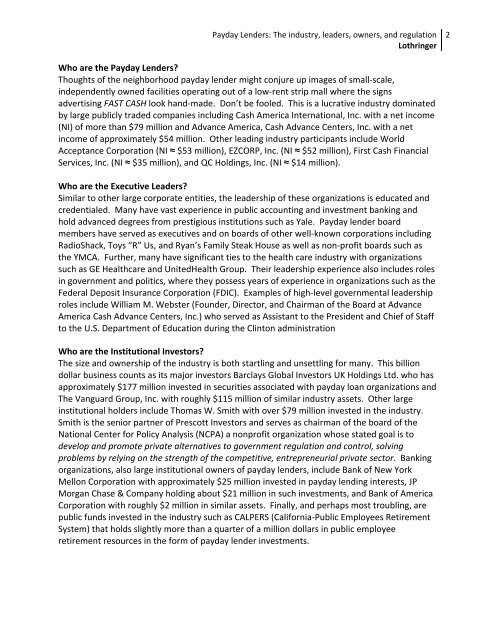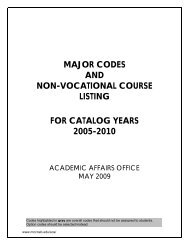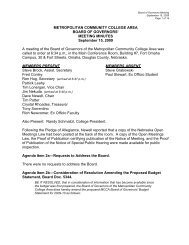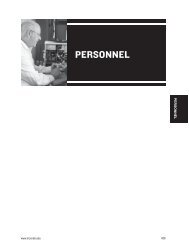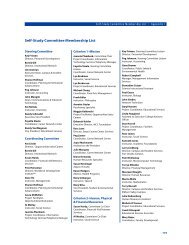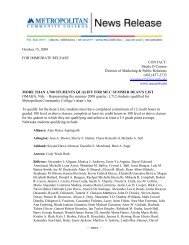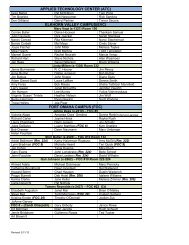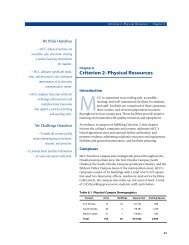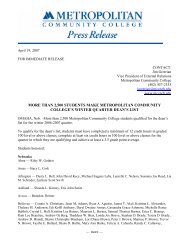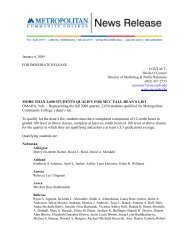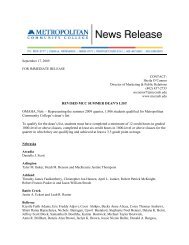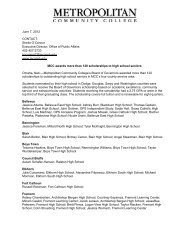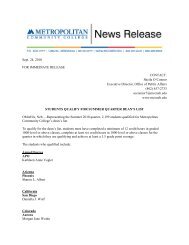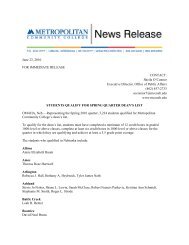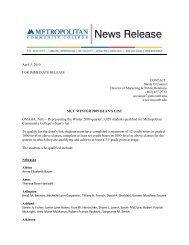Payday Lenders: The industry, leaders, owners, and regulation
Payday Lenders: The industry, leaders, owners, and regulation
Payday Lenders: The industry, leaders, owners, and regulation
Create successful ePaper yourself
Turn your PDF publications into a flip-book with our unique Google optimized e-Paper software.
<strong>Payday</strong> <strong>Lenders</strong>: <strong>The</strong> <strong>industry</strong>, <strong>leaders</strong>, <strong>owners</strong>, <strong>and</strong> <strong>regulation</strong><br />
Lothringer<br />
Who are the <strong>Payday</strong> <strong>Lenders</strong>?<br />
Thoughts of the neighborhood payday lender might conjure up images of small‐scale,<br />
independently owned facilities operating out of a low‐rent strip mall where the signs<br />
advertising FAST CASH look h<strong>and</strong>‐made. Don’t be fooled. This is a lucrative <strong>industry</strong> dominated<br />
by large publicly traded companies including Cash America International, Inc. with a net income<br />
(NI) of more than $79 million <strong>and</strong> Advance America, Cash Advance Centers, Inc. with a net<br />
income of approximately $54 million. Other leading <strong>industry</strong> participants include World<br />
Acceptance Corporation (NI ≈ $53 million), EZCORP, Inc. (NI ≈ $52 million), First Cash Financial<br />
Services, Inc. (NI ≈ $35 million), <strong>and</strong> QC Holdings, Inc. (NI ≈ $14 million).<br />
Who are the Executive Leaders?<br />
Similar to other large corporate entities, the <strong>leaders</strong>hip of these organizations is educated <strong>and</strong><br />
credentialed. Many have vast experience in public accounting <strong>and</strong> investment banking <strong>and</strong><br />
hold advanced degrees from prestigious institutions such as Yale. <strong>Payday</strong> lender board<br />
members have served as executives <strong>and</strong> on boards of other well‐known corporations including<br />
RadioShack, Toys “R” Us, <strong>and</strong> Ryan’s Family Steak House as well as non‐profit boards such as<br />
the YMCA. Further, many have significant ties to the health care <strong>industry</strong> with organizations<br />
such as GE Healthcare <strong>and</strong> UnitedHealth Group. <strong>The</strong>ir <strong>leaders</strong>hip experience also includes roles<br />
in government <strong>and</strong> politics, where they possess years of experience in organizations such as the<br />
Federal Deposit Insurance Corporation (FDIC). Examples of high‐level governmental <strong>leaders</strong>hip<br />
roles include William M. Webster (Founder, Director, <strong>and</strong> Chairman of the Board at Advance<br />
America Cash Advance Centers, Inc.) who served as Assistant to the President <strong>and</strong> Chief of Staff<br />
to the U.S. Department of Education during the Clinton administration<br />
Who are the Institutional Investors?<br />
<strong>The</strong> size <strong>and</strong> <strong>owners</strong>hip of the <strong>industry</strong> is both startling <strong>and</strong> unsettling for many. This billion<br />
dollar business counts as its major investors Barclays Global Investors UK Holdings Ltd. who has<br />
approximately $177 million invested in securities associated with payday loan organizations <strong>and</strong><br />
<strong>The</strong> Vanguard Group, Inc. with roughly $115 million of similar <strong>industry</strong> assets. Other large<br />
institutional holders include Thomas W. Smith with over $79 million invested in the <strong>industry</strong>.<br />
Smith is the senior partner of Prescott Investors <strong>and</strong> serves as chairman of the board of the<br />
National Center for Policy Analysis (NCPA) a nonprofit organization whose stated goal is to<br />
develop <strong>and</strong> promote private alternatives to government <strong>regulation</strong> <strong>and</strong> control, solving<br />
problems by relying on the strength of the competitive, entrepreneurial private sector. Banking<br />
organizations, also large institutional <strong>owners</strong> of payday lenders, include Bank of New York<br />
Mellon Corporation with approximately $25 million invested in payday lending interests, JP<br />
Morgan Chase & Company holding about $21 million in such investments, <strong>and</strong> Bank of America<br />
Corporation with roughly $2 million in similar assets. Finally, <strong>and</strong> perhaps most troubling, are<br />
public funds invested in the <strong>industry</strong> such as CALPERS (California‐Public Employees Retirement<br />
System) that holds slightly more than a quarter of a million dollars in public employee<br />
retirement resources in the form of payday lender investments.<br />
2


